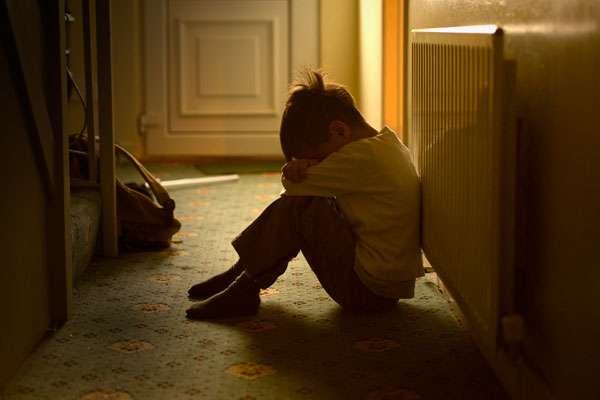Responding to child maltreatment

When children experience traumatic events at a young age, the effects can be devastating and long-lasting. However, new research is helping to develop better ways of parenting and helping at-risk children.
Traumatic events in childhood can be good indicators of mental ill-health through childhood and well into adulthood, says Senior Lecturer and Clinical Psychologist in the UTS Graduate School of Health Dr John McAloon.
"For this, and many other reasons, children who have been maltreated are particularly vulnerable," explains McAloon.
"They may be born to parents who have not had good models of parenting, to parents with their own trauma histories, or to parents with significant mental health difficulties.
"Every parent makes mistakes, but abusive or neglectful parenting goes beyond mistakes and into the realm of trauma."
McAloon's research focuses on developing ways to help parents who have come to the attention of the State Government's Family and Community Services to find better ways to parent.
"Teaching parents about self-control, ways to regulate their own emotions, helps them better manage frustrating situations that are part and parcel of parenting. Often it can be the difference between them taking their frustrations out on their children and not doing that."
The UTS Family Child Behaviour Clinic, which McAloon established in 2015, has also developed a program of therapeutic foster care. The 10-week, group-based program offers education and therapeutic skills to foster carers and kinship carers (family members or close family friends who help to care for children when their parents cannot). It focuses on areas like child safety, trauma, attachment, relationships and skills-building within the context of foster and kinship care.
"We know there are often significant social, emotional, behavioural and neuropsychological implications for children who have been removed from their biological parents following early trauma.
"Often what happens when children are removed from their biological parents is they are placed in foster homes with fostering families, or with members of their own extended families. Sometimes, for a range of reasons, these arrangements fall apart and they are moved to another placement, and then another," explains McAloon.
"As you can imagine, this can be damaging. Attachment relationships that are essential for children's development are repeatedly broken. In a situation like this, a child has only limited ability to develop a stable idea of who they are, what they are worth, and how they might behave before their trust is broken. The more this happens, the more detrimental the effects can be.
"If the first foster care placement, or the second, can be supported to withstand the difficult emotions and behaviour that often follow early maltreatment, then those children can have a better chance."
The most recent figures from the Australian Institute of Health and Welfare show that nearly 152,000 children have received child protection services. Indigenous children are also seven times more likely than non-Indigenous children to have received child protection services.
"Child protection and out-of-home care statistics – both at a state level and nationally – are unacceptably high for a country with Australia's standard of education, living and opportunity," says McAloon.
"On the basis of relevant research evidence, a strong argument can be made that the disadvantage evident in some Australian communities has resulted from past social policies.
"The implications of this practice and its results, in terms of the destruction of attachment relationships, have been devastating for subsequent generations. This continues to happen today."
But it's something we can change. McAloon sees a future where research programs like his inform better parenting for vulnerable populations.
"For many reasons, Australia needs to think about how it is both establishing and responding to disadvantage, how it is distributing opportunity, and how it is placing itself for the future.
"Australia has a duty of care. Programs of early intervention in areas where there are high levels of vulnerability can lead to massive savings in social, emotional and mental health, as well as criminal justice and personal costs."















